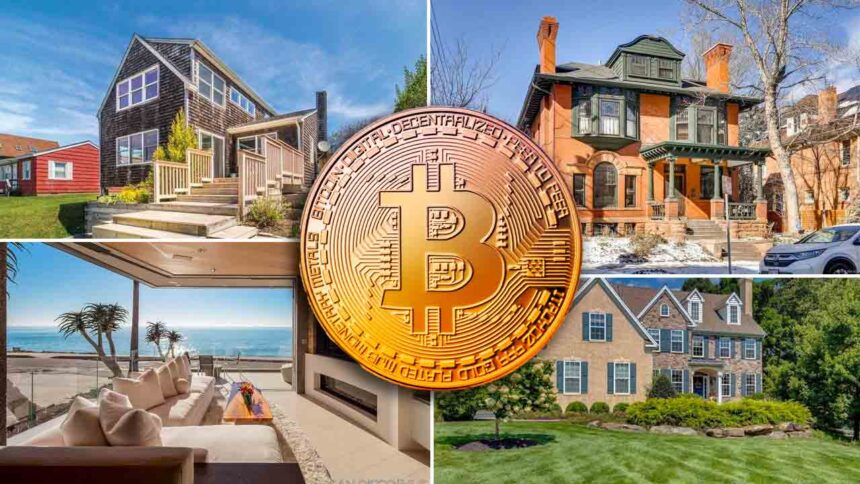The American Dream long tied to the white picket fence of homeownership is getting a digital makeover. In the early 2000s, “no-doc” loans let people buy homes without proving income or assets, a system ripe for abuse. Today, lenders demand W-2s, bank statements, and credit scores. But the financial landscape is shifting, and crypto is breaking down the old gates. Blockchain wallets, transparent ledgers, and digital assets are rewriting the rules of wealth. The Federal Housing Finance Agency (FHFA) recently dropped a bombshell: Fannie Mae and Freddie Mac will now consider crypto assets in mortgage applications. This isn’t just a policy tweak it’s a cultural earthquake. Crypto isn’t knocking politely on the door of the American Dream; it’s built a back entrance and strolled right in.
Crypto as Wealth, Not Hype
For decades, homeownership symbolized stability and success. But as wealth evolves, so must the system. The FHFA’s move signals that digital assets aren’t just speculative tokens—they’re legitimate wealth. Redfin’s 2024 data shows 12% of homebuyers plan to use crypto for down payments, up from 5% in 2019. Meanwhile, DeFi platforms are enabling borrowers to use crypto as collateral without triggering taxable events. This isn’t about fleeting trends. A new generation of digital investors self-made, often without traditional jobs has built wealth outside the system. They’re not asking for permission; they’re demanding a seat at the real estate table. The FHFA’s decision doesn’t just open the door it acknowledges that crypto holders belong.
Freedom in Transparency
Critics are nervous, warning that volatile assets like Bitcoin could destabilize the housing market. But let’s not rewrite history: the 2008 crash wasn’t caused by crypto. It was fueled by opaque leverage, synthetic debt, and Wall Street’s smoke-and-mirrors. Crypto, by contrast, thrives on transparency. Blockchain wallets don’t lie. Smart contracts don’t fake pay stubs. DeFi isn’t perfect, but it’s honest about what it is—a stark contrast to the shadow banking of yesteryear. This shift is about more than finance; it’s about freedom. Wealth in 2025 isn’t just fiat in a savings account or a 401(k). It’s tokens, NFTs, and decentralized assets held by those who dared to bet on a new system. The FHFA’s move validates risk-takers who built fortunes without waiting for a bank’s approval.
Flipping the Script: Homes Fueling Crypto
The innovation runs both ways. Crypto isn’t just helping people buy homes it’s turning homes into launchpads for digital wealth. Some are leveraging real estate to dive deeper into crypto, flipping the traditional model where a house was the endgame. This carries risks, no doubt. Not everyone should treat their home like a Bitcoin ATM. But smart regulation can balance innovation with consumer protection, ensuring the system evolves without repeating past mistakes. The alternative? A financial world stuck in the past, serving only those who play by outdated rules. Centralized banks are starting to wake up, but they’re playing catch-up to a decentralized reality.
The New American Dream
Crypto is reshaping the blueprint for the American Dream. Wealth now spans physical and digital realms. Creditworthiness isn’t just a credit score it’s onchain transparency. The housing market must adapt to its people, not gatekeep them. Crypto isn’t a threat to homeownership; it’s the spark for its reinvention. We don’t need more barriers. We need bridges—between where digital natives have built their wealth and where they want to plant roots. The mantra of “location, location, location” now lives online, decentralized, and transparent. Crypto isn’t just changing finance. It’s redefining what it means to arrive.
Disclaimer: This article is for informational purposes only and does not constitute legal or investment advice. The views expressed are those of the author and do not necessarily reflect those of Vizi.com.



















